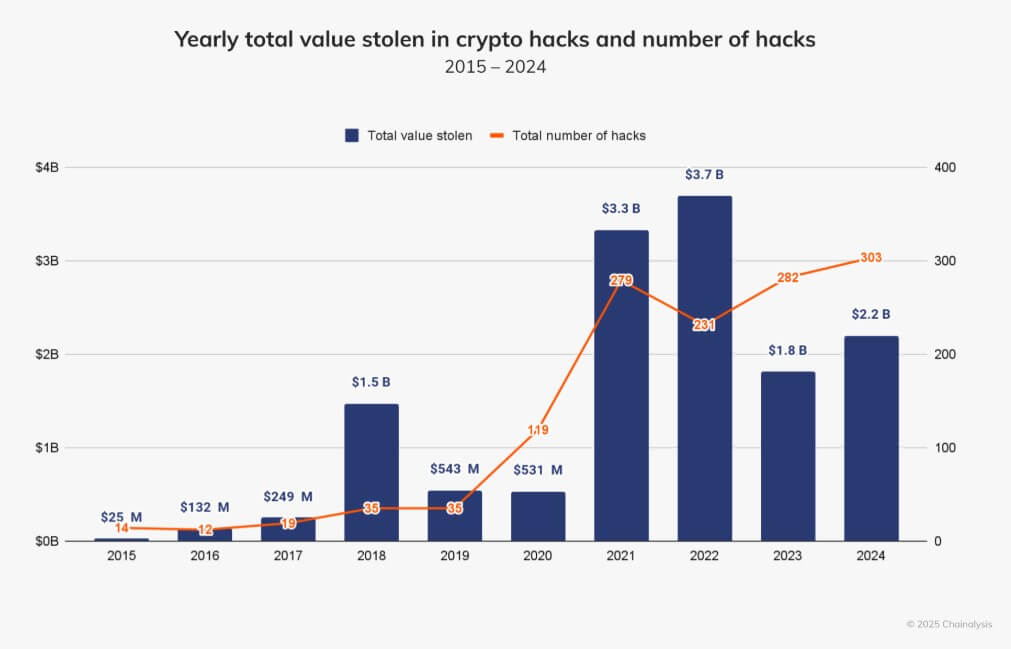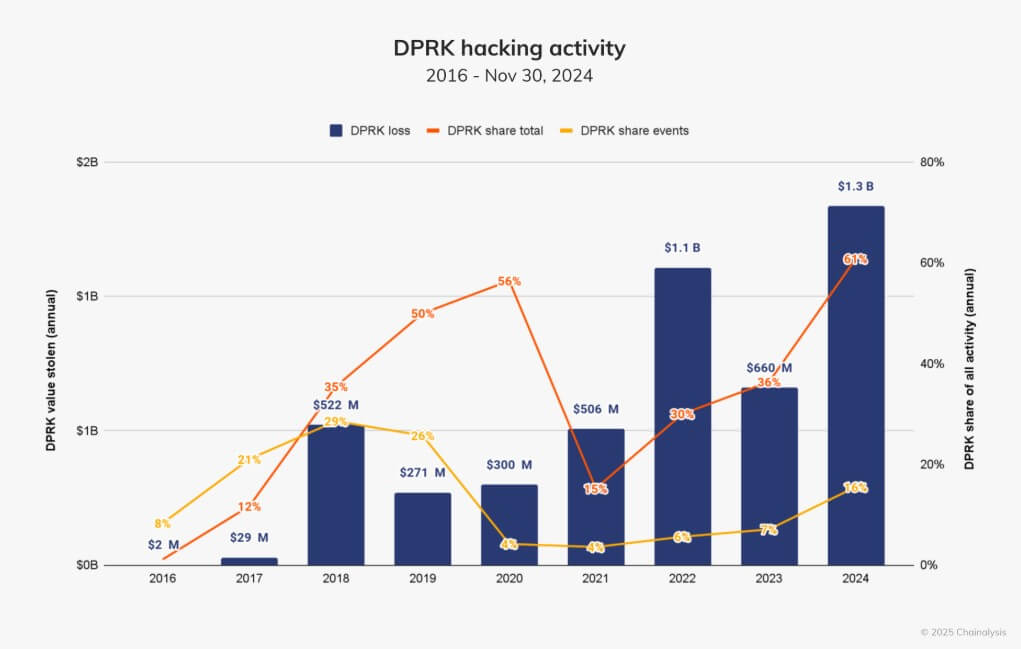
Cryptocurrency theft surged to $2.2 billion in 2024, a 21% increase from the previous year.
According to a Dec. 19 report from Chainalies, this increase is closely tied to the expansion of hacking activity, particularly by North Korea-linked cybercrime groups.
Intensification of hacking activity
The cryptocurrency sector saw 303 hacking incidents in 2024, up from 282 in 2023. These attacks resulted in significant losses, with the majority of the funds stolen between January and July ($1.58 billion). This period accounted for 72% of total theft in 2024, reflecting an 84% jump compared to the same period in 2023.
Unlike previous years, centralized exchanges have borne the brunt of these attacks, overtaking DeFi platforms as the primary targets. Notable incidents include the $305 million breach of DMM Bitcoin in May and the $235 million hack of WazirX in July.

Chainalysis identified private key compromise as a key vulnerability, with these exploits contributing to nearly 44% of all funds stolen in 2024. Hackers, on the other hand, often centralize these stolen assets through decentralized exchanges, mixing services, and blockchain bridges to hide their activities and thwart tracing. effort.
North Korea leads cryptocurrency heist
North Korean hackers reached a new level in 2024, stealing $1.34 billion in 47 attacks.
These operations accounted for 61% of the total funds stolen during the year, a staggering 103% increase from the $660 million attributed to North Korea in 2023. The data also revealed that the pace of attacks, especially those involving large amounts of money over $50 million, has increased. .


However, geopolitical developments may have influenced these activities.
After the summit between Russian President Vladimir Putin and North Korean leader Kim Jong Un in late June, the value stolen by North Korean hackers decreased significantly. Since July 1, the average daily amount has decreased by nearly 54%.
On the other hand, the number of non-North Korean thefts has increased slightly since this period, suggesting a possible shift in North Korea's focus, perhaps related to increased military and technological cooperation with Russia. are.
mentioned in this article

